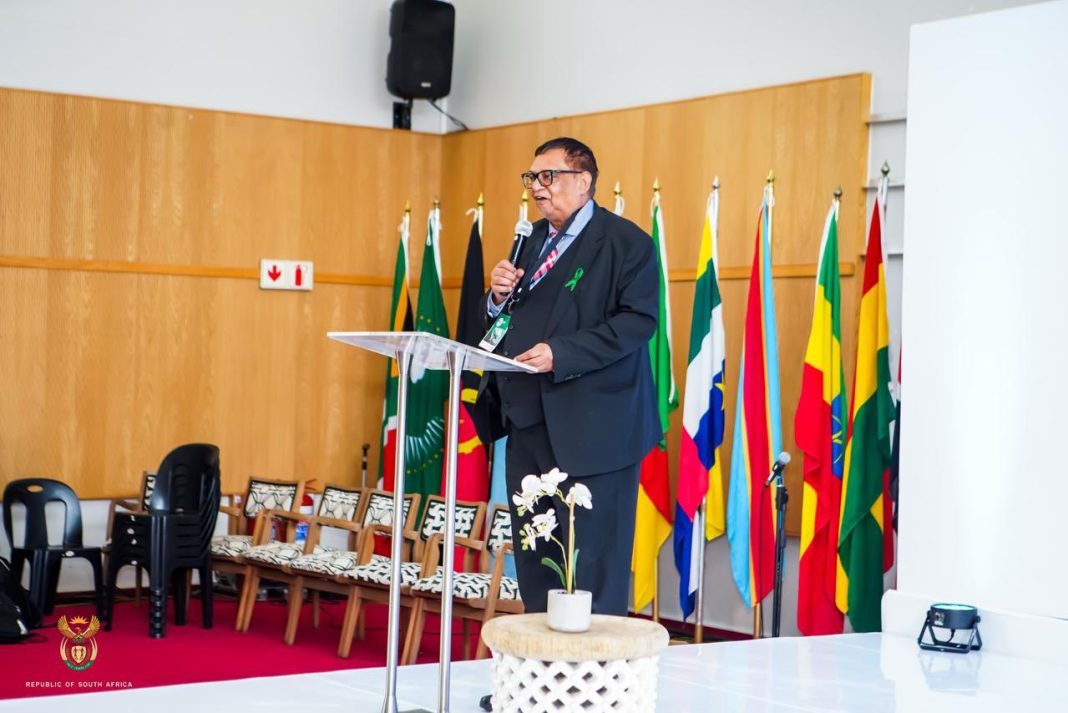By Akani Nkuna
Following hundreds of children gathering in Johannesburg to discuss influencing government policy that affects them, attention is now turning to the practical roll-out of resolutions put forward during the recent Africa Children’s Summit.
Stakeholders are moving from discussion to action, aiming to turn the ideas and priorities voiced by young participants into tangible outcomes. Governments and partners are expected to begin aligning resources and strategies to ensure meaningful implementation of the summit’s recommendations.
Linda Ncube-Nkomo, CEO of the Nelson Mandela Children’s Fund, emphasised the importance of collaboration in implementing the summit resolutions.
Speaking to Inside Education on Monday, she noted that no single organisation could do it alone.
She also confirmed that on Wednesday that child president of the Nelson Mandela Children’s Parliament, Tara Hendricks, would be present to the African Union’s Committee of Experts on the Rights and Welfare of the Child in Lesotho.
“So already we are wanting to locate this within the structures of AU because they have got more tentacles into the countries on the continent,” Ncube-Nkomo added.
Ncube-Nkomo noted that a meeting with key stakeholders in the child sector was scheduled within the next two weeks, saying that the goal was to review the statement from the summit and begin crafting actionable implementation plans to ensure the proposed outcomes were effectively realised.
Social Development Deputy Minister Ganief Hendricks described the child-led panel discussions as vibrant and deeply insightful, bringing forward key issues faced by children across the continent. He emphasised the need to ensure that meetings of this scale led to tangible outcomes, rather than allowing children’s voices to be buried in documents without real, lasting impact.
“Implementation and action are of paramount importance. This must be a call for action and not formalities. The outcomes statement as adopted by all the children attending, will be canvassed in all the participating countries,” Hendricks said during the closing session of the summit.
Hendricks said South Africa would leverage its upcoming G20 Presidency to advocate for increased global commitment to child participation. The country planned to use its leadership role to encourage other nations to prioritise and strengthen the involvement of children in policy-making and decision-making processes worldwide.
In a unified message, the children of Africa have voiced their hopes and demands, calling on leaders and governments to ensure that every child has access to education, safety, inclusion and the opportunity for a brighter future.
“Schools should be free for every child. No one should stay home because they can’t pay fees. Governments should give support like bursaries and scholarships to children whose families cannot afford school,” said the statement.
“Children with disabilities should also learn in schools that meet their needs—with teachers who understand sign language and other special ways of learning.”
The children also outlined specific demands aimed at improving their learning and well-being. These included improved school infrastructure and facilities, access to books, school supplies and technology, as well as the need for more qualified and dedicated teachers.
Additionally, they called for an end to harmful practices and discrimination, and emphasised the importance of using technology in ways that supported, rather than harmed their development.
“Children learn best when they are happy and healthy. We want schools to give meals, provide sanitary pads for girls and offer support when we feel sad or stressed as well as comprehensive sexuality education. There should be time to play and safe spaces to relax and be ourselves,” they said.
As the summit drew to a close, it featured child-led panel discussions participants engaged in meaningful dialogue about the challenges they believe hinder their growth. These sessions highlighted key issues that, in their view, must be prioritised and addressed through the Africa Children’s Summit platform.
INSIDE EDUCATION







